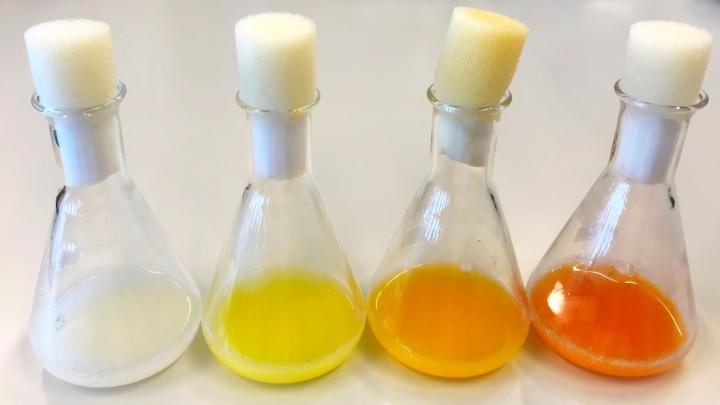
Credit: Courtesy of Klaudia Ciurkot
Scientists have uncovered a way to control many genes in engineered yeast cells, opening the door to more efficient and sustainable production of bio-based products.
The study, published in Nucleic Acids Research by researchers from DSM’s Rosalind Franklin Biotechnology Center in Delft, the Netherlands, and the University of Bristol, has shown how to unlock CRISPR’s potential for regulating many genes simultaneously.
Baker’s yeast, or Saccharomyces cerevisiae to give it it’s full name, is considered as a workhorse for biotechnology. Not only has it been used for producing bread and beer for thousands of years, but today it can also be engineered to produce an array of other useful compounds that form the basis of pharmaceuticals, fuels, and food additives. However, achieving optimal production of these products is difficult, requiring the complex biochemical networks inside the cell to be rewired and extended through the introduction of new enzymes and the tuning of gene expression levels.
Klaudia Ciurkot, first author of the study and an EU-funded industrial PhD student based at DSM stated: “To overcome the challenges of optimising S. cerevisiae cells for bio-production, we explored the use of a less widely employed CRISPR technology based on the Cas12a protein. Unlike the Cas9 protein that is more commonly used, Cas12a can be rapidly programmed to interact with sequences that are responsible for controlling gene expression and easily targeted to many different sequences at the same time. This made it an ideal platform for carrying out the complex gene regulation often required for producing industrially relevant compounds.”
She went on to add: “What was particularly exciting for me was that this study is the first to demonstrate Cas12a’s ability to control gene expression in S. cerevisiae and through joint research across DSM and the University of Bristol, we were able to figure out the rules for how this system is best designed and used.”
Thomas Gorochowski, a co-author on the work and Royal Society University Research Fellow based in the School of Biological Sciences at the University of Bristol further stated: “It is hugely exciting that Cas12a has been shown to work so well for gene regulation in the yeast S. cerevisiae, an organism that has huge industrial importance. In addition, the systematic approach we have taken to pull apart and analyse the many difficult aspects of the system, act as a firm foundation for future optimisation.”
In addition to analysing how the Cas12a-based system is best engineered, the scientists went on to show its use in robustly controlling the production of β-carotene – an industrially important compound used in production of food additives and nutraceuticals.
René Verwaal, senior author and Senior Scientist at DSM ended by stating: “By demonstrating the capabilities of this system to control the biosynthesis of β-carotene, we have opened the gates to its broader application for other key bio-based products. I cannot wait to see how our system is used to develop more sustainable production platforms for everyday products we all rely on.”
###
The study was funded by the European Union’s Horizon 2020 Research and Innovation Programme (ITN SynCrop) under the Marie Sk?odowska-Curie grant agreement No 764591, BrisSynBio, a BBSRC/EPSRC Synthetic Biology Research Centre, the Royal Society, and supported by the Bristol BioDesign Institute (BBI).
Paper
Efficient multiplexed gene regulation in Saccharomyces cerevisiae using dCas12a in Nucleic Acids Research by Klaudia Ciurkot, Thomas E. Gorochowski, Johannes A. Roubos and René Verwaal.
Media Contact
Laura Thomas
[email protected]




